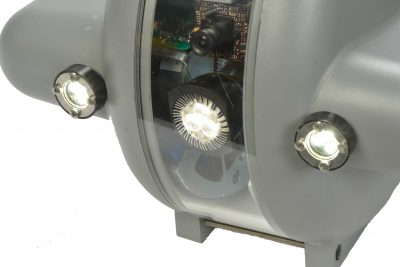Configure Now
Items in Your Cart0
0Items in Your Cart
Start building your packageShop Now
If you work in the shipping industry or own a vessel (whether it be a tug boat or a massive freight ship), completing regular hull inspections can be one way to avoid damage and decay on your boat. Completing a hull inspection on your vessel can give insight as to whether or not the structure of your ship is compromised, the paint job is holding up or if the hull is clean of barnacles and other marine life. Visual hull inspections simply provide ease of mind that everything is as it should be.
Hull inspections are important but how should they be carried out? Dry docking and other measures are used in the shipping industry and at marinas. Procedures enacted by regulatory bodies and companies are important to ensure that vessels are operating properly. Sometimes taking your vessel completely out the water when you believe it's not required can seem like a waste of time. However it may be important from a financial and structural point of view to inspect your hull between mandatory dry-docking. With a system like Deep Trekker's DTG3 ROV, you can have eyes in the water in less than 5 minutes and do hull inspections any day you desire.
With that in mind, here are 4 ways to improve your hull inspections with a Deep Trekker ROV:
Take off a plate from under each handle on the ROV to make your unit positively buoyant. This means that when the unit is in the water it will no longer stay at the depth you drove it to but will rise slowly in the water. This can help when performing a hull inspection to ensure that you are sticking close to the vessel hull and not sinking down.

This suggestion should be paired with the tip above. Once you have set your Deep Trekker ROV to be positively buoyant, consider adding our Crawler Wheel accessory. (No, these are not the same wheels that come with our Pipe Crawler Systems.) Crawler wheels replace the top handles of a unit. When it is floating up toward the hull, it has wheels attached so that you can drive it along the hull of the vessel. By pointing your camera directly up you can now gain a clear view of any discrepancies in your hull.

Deploy a Deep Trekker ROV for rapid, safe, and cost-effective hull inspections in any condition.
These are just 4 ways that you can improve hull inspections with a Deep Trekker ROV. We have a number of add-ons that you have the option of including in your ROV package that can help with various shipyard projects.
November 3rd, 2025
At REPMUS 2025, Deep Trekker’s ROVs validated real-world mine countermeasure capabilities...
July 5th, 2025
Deep Trekker’s new Tampa facility brings faster ROV repairs, in-stock parts,...
June 11th, 2025
Equipped with sonar and DVL, Deep Trekker ROVs are helping SES...